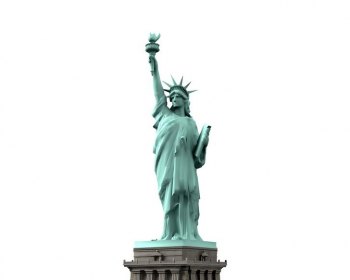
10 years ago, Aug. 3, 2004: The National Park Service reopened the Statue of Liberty’s pedestal to tourists. The statue had been closed to visitors in the wake of the Sept. 11, 2001, attacks. Initially, visitors were allowed in the pedestal but could not visit the statue’s crown. The crown reopened in July 2009.
20 years ago, Aug. 31, 1994: In Northern Ireland, a cease fire was declared by Sinn Fein, formerly the political wing of the Irish Republican Army.
30 years ago, Aug. 30, 1984: The Space Shuttle Discovery was launched on its first mission to deploy three communications satellites. In 1990, Discovery carried the Hubble Space Telescope into space.
40 years ago, Aug. 8, 1974: Faced with an impeachment trial as the Watergate scandal unfolded, President Richard Nixon resigned from office. He was the first president in U.S. history to resign.
50 years ago, Aug. 7, 1964: The Gulf of Tonkin resolution authorized President Lyndon B. Johnson to send combat troops in Vietnam.
60 years ago, Aug. 24, 1954: The Communist Control Act, signed by President Dwight D. Eisenhower, outlawed the Communist Party in the United States.
70 years ago, Aug 4, 1944: Nazis arrested Jewish families hiding in an Amsterdam annex, including teenage diarist Anne Frank. She died of typhus in March, 1945, while at the Bergen-Belsen camp. She was 15 years old.
80 years ago, Aug. 19, 1934: An astounding 90 percent of the German public voted to make Chancellor Adolf Hitler Führer und Reichskanzler (leader and chancellor). “The German people were asked to vote whether they approved the consolidation of the offices of President and Chancellor in a single Leader-Chancellor personified by Adolf Hitler,” The New York Times reported. “By every appeal known to skillful politicians and with every argument to the contrary suppressed, they were asked to make their approval unanimous. Nevertheless 10 percent of the voters have admittedly braved possible consequences by answering "No" …”
90 years ago, Aug. 30 1924: The Dawes Plan was adopted by German and Allied governments. The brainchild of banker Charles Dawes – who later became vice president – the plan was designed to stabilize the struggling German economy by reducing reparations payments. Dawes won the Noble Peace prize for his efforts.
100 years ago, throughout August 1914: As World War 1 unfolded, various countries declared war -- Germany declared war on Russia, Germany declared war on France, Britain declared war on Germany, Austria declared war on Russia and so on. See the U.S. Library of Congress website.
Related:
World War I, Day One: July 28, 1914
100 years ago: 5 reasons World War 1 started